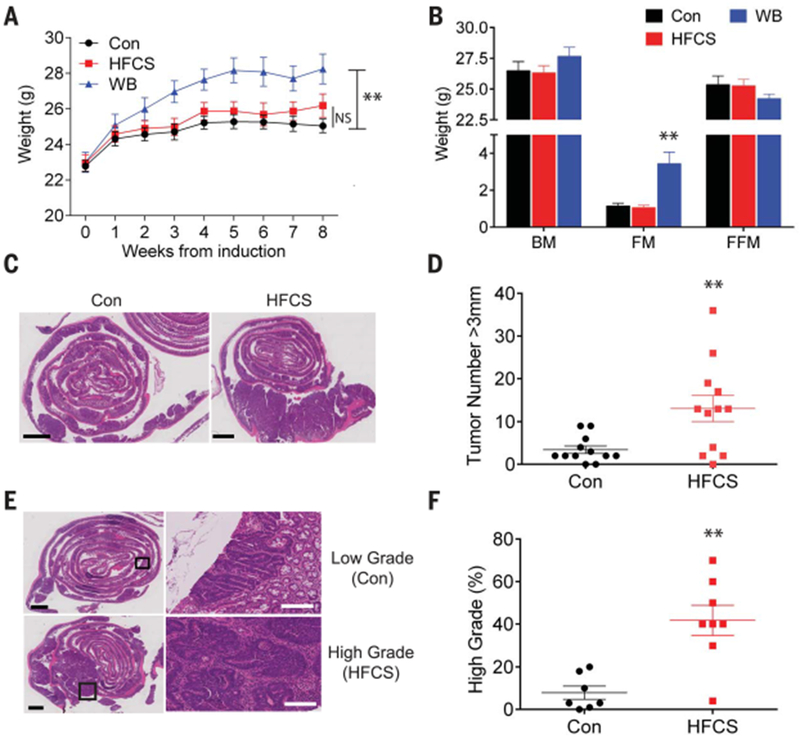Fig. 1. HFCS enhances intestinal tumor growth in APC-deficient mice independent of obesity.

(A) Mean weight of untreated APC−/− mice (Con), APC−/− mice treated with a daily oral gavage of HFCS, and APC−/− mice fed with unlimited HFCS in drinking water bottle (WB) following the induction of intestinal tumors. n = 12. (B) Body composition of APC−/− mice in Con (n = 8), HFCS (n = 6), and WB (n = 9) groups were measured after 8 weeks of treatment using magnetic resonance. BM, body mass; FM, fat mass; FFM, fat-free mass. (C) H&E (hematoxylin and eosin) staining of the distal small intestine from APC−/− mice treated with Con or HFCS via daily oral gavage for 8 weeks. Black bar indicates 2 mm. (D) The size of each tumor (diameter) in the intestine was determined in whole-mount tissue after methylene blue staining, using a dissecting microscope. Data represent the number of tumors over 3 mm in diameter in Con and HFCS-treated APC−/− mice. n = 12. (E) Representative pathologic grading of intestinal sections from Con and HFCS-treated APC−/− mice. Black bar indicates 2 mm. White bar indicates 200 μm. (F) Percentage of high-grade lesions from Con (n = 7) and HFCS-treated (n = 8) APC−/− mice. (A) and (B): Two-way analysis of variance (ANOVA) followed by Holm-Sidak post-test for multiple comparisons; (D) and (F): Student’s t test; NS: not significant. **P<0.01. All data represent means ± SEM.
